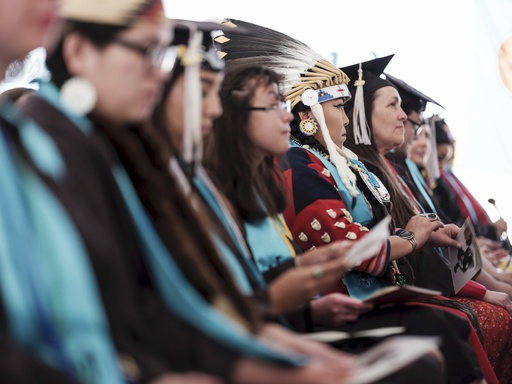Billionaire philanthropist MacKenzie Scott has been making significant donations to Native American nonprofits, which has been highly beneficial due to their history of limited trust and funding from private philanthropy. While Scott’s contributions to Native American nonprofits are a fraction of the billions she has donated overall, they stand out because they have gone directly to organizations led by Native Americans.
The $132.5 million given by Scott to Native American-serving nonprofits in the past four years is a stark contrast to the minimal funding typically received by Native American-led organizations from philanthropic sources. Data shows that less than 0.5% of funding from large U.S. foundations goes to Native American nonprofits, highlighting the significance of Scott’s contributions.
Scott’s donations have not only provided much-needed financial support but have also increased the visibility and credibility of Indigenous groups. The funds received have allowed organizations like the Institute of American Indian Arts and the First Nations Development Institute to expand their programs, partnerships, and impact within their communities.
One of the notable aspects of Scott’s philanthropy is its simplicity and lack of restrictions, which sets it apart from traditional foundation grants. The ease of the process and the unrestricted nature of the funds have enabled organizations to make significant advancements in their work and attract more attention from other donors and funders.
Furthermore, Scott’s contributions have not only directly benefited the recipient organizations but have also had a ripple effect within the philanthropic sector. By drawing attention to Native American causes and nonprofits, Scott’s gifts have influenced individual donors to increase their support, leading to a fundraising boost for various organizations, big and small.
The impact of Scott’s giving to Native American-controlled nonprofits has sparked discussions about the need for more substantial support for Indigenous communities and organizations. As philanthropy scholars and charity leaders observe the effects of Scott’s contributions, there is hope that it will pave the way for a greater focus on funding Native-led initiatives in the future, ultimately empowering these communities to manage charitable resources effectively.


